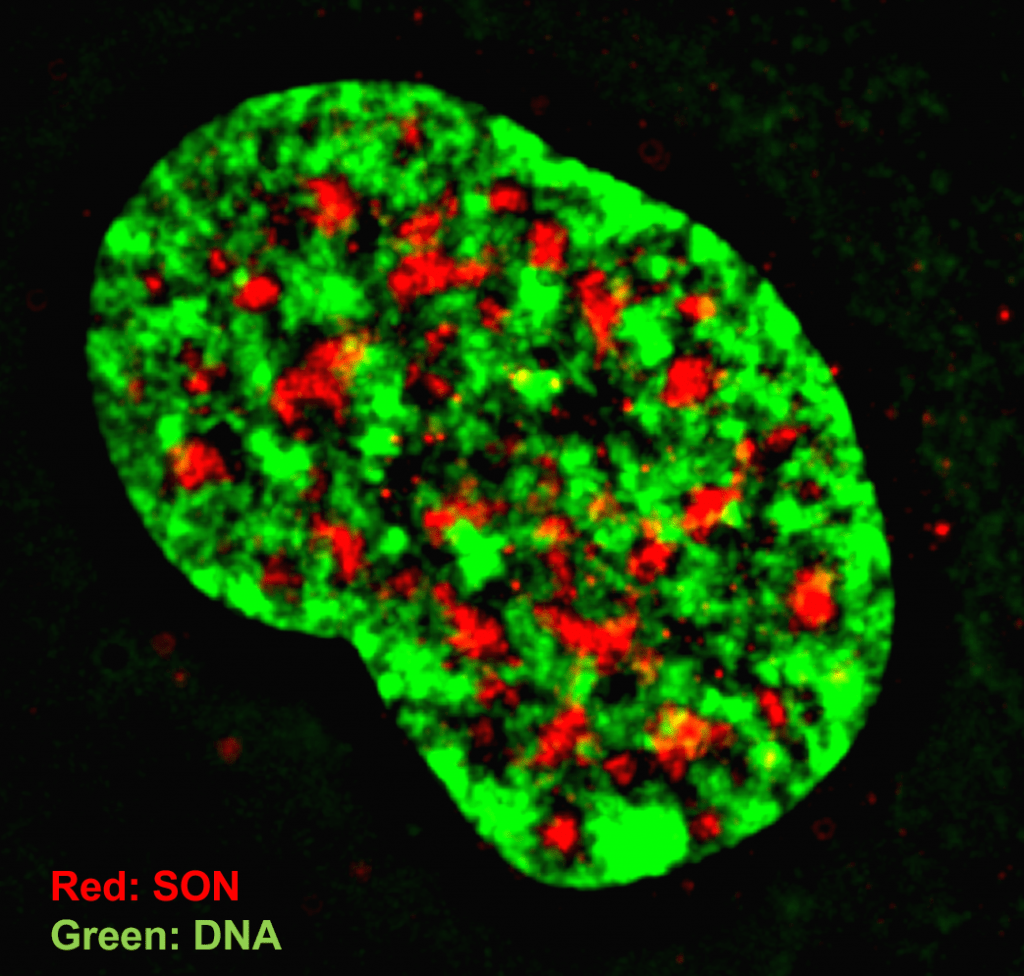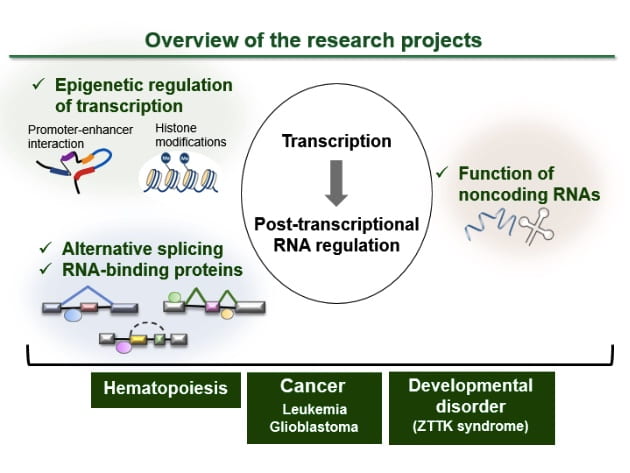Overview of Research projects:

1. SON-mediated RNA splicing and epigenetic regulation in cancer.
SON is a large nuclear speckle protein that carries the ability to bind both DNA and RNA and functions as a transcription factor and a splicing co-factor. SON expression is also noticeably high in embryonic stem cells and is downregulated during differentiation. Aberrant expression of SON has been implicated in cancer including myeloid leukemia. We study how SON and its splice variants (short isoforms) are functionally connected with other transcription factors, epigenetic factors and RNA-binding proteins, and how different SON isoforms affect transcription, histone modifications and alternative RNA splicing in pre-malignant hematopoietic disorders, leukemia and brain tumors.


2. Characterization of ZTTK syndrome and underlying molecular mechanisms.
Our lab identified De Novo SON mutations in human patients with intellectual disability and developmental delay, and identified the causative role of SON mutations in defective brain development and other congenital anomalies. Our research made a major contribution to defining a novel intellectual disability syndrome designated as Zhu-Tokita-Takenouchi-Kim syndrome (ZTTK syndrome with the letter “K” taken from the last name of our former postdoc Jung-Hyun Kim!; OMIM entry #617140 ). Our work was critical for defining this this new syndrome in major databases and websites for rare genetic diseases and now greatly benefits the clinical diagnosis of patients. We are continuing our research to document clinical features of ZTTK syndrome and to understand how SON loss-of-function and subsequent RNA splicing defects affect development and the functional maturation of various organs and cell types in our body, including hematopoietic/immune system and brain/neuronal system. Our goal is to establish useful information and knowledge about ZTTK syndrome for ZTTK syndrome patients/families and the clinicians all around the world so that we can achieve better clinical practice and patient care and ultimately to develop potential therapies for this rare disease. Our lab is proud and honored to be part of the ZTTK SON-Shine community! Please visit the ZTTK SON-Shine Foundation!

3. Roles of noncoding RNAs in cancer.
RNAs are not just for making proteins! Emerging evidence has shown that noncoding RNAs (microRNAs, long noncoding RNAs, enhancer RNAs, circular RNAs etc.) play pivotal roles in regulation of gene expression and signal transduction by interacting with DNA, RNA and proteins. We are interested in dissecting the functional significance of noncoding RNAs to understand how noncoding RNAs regulate cancer stemness, metabolism and metastasis.

